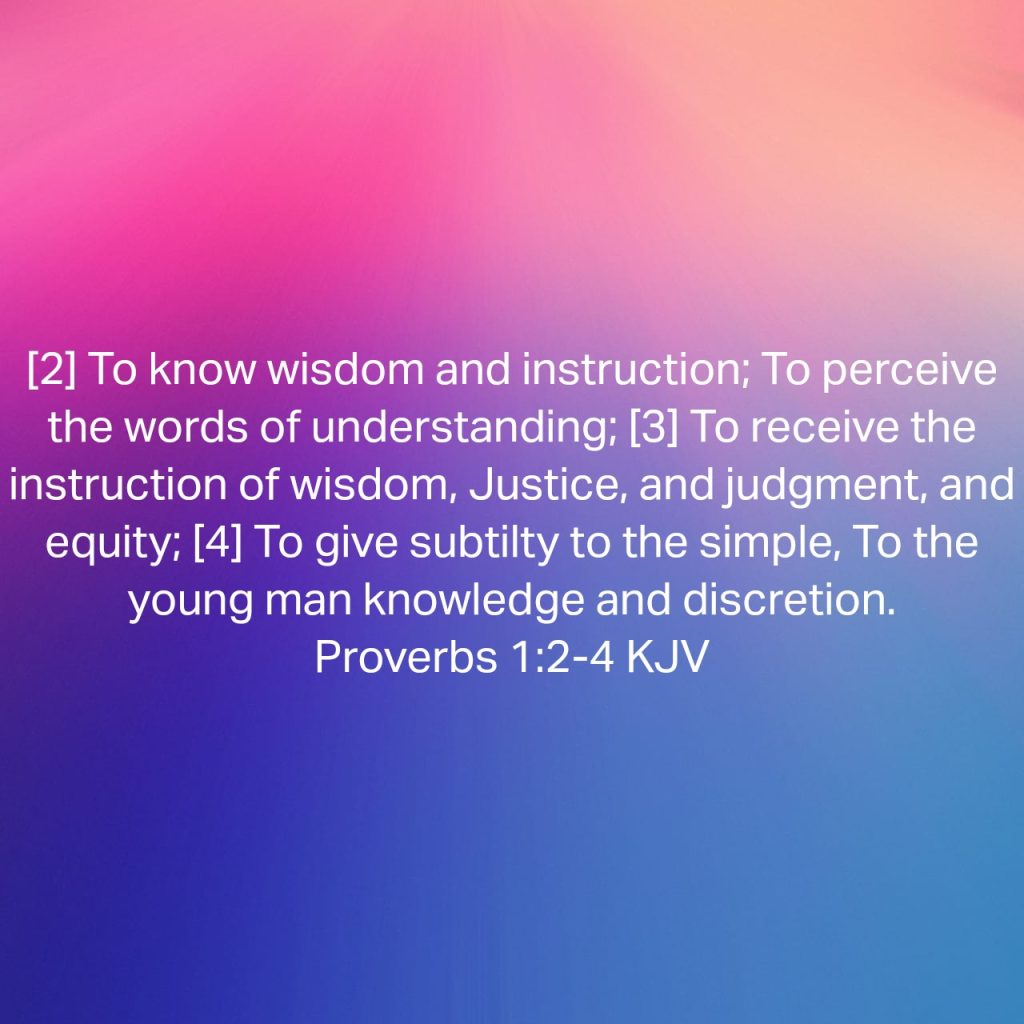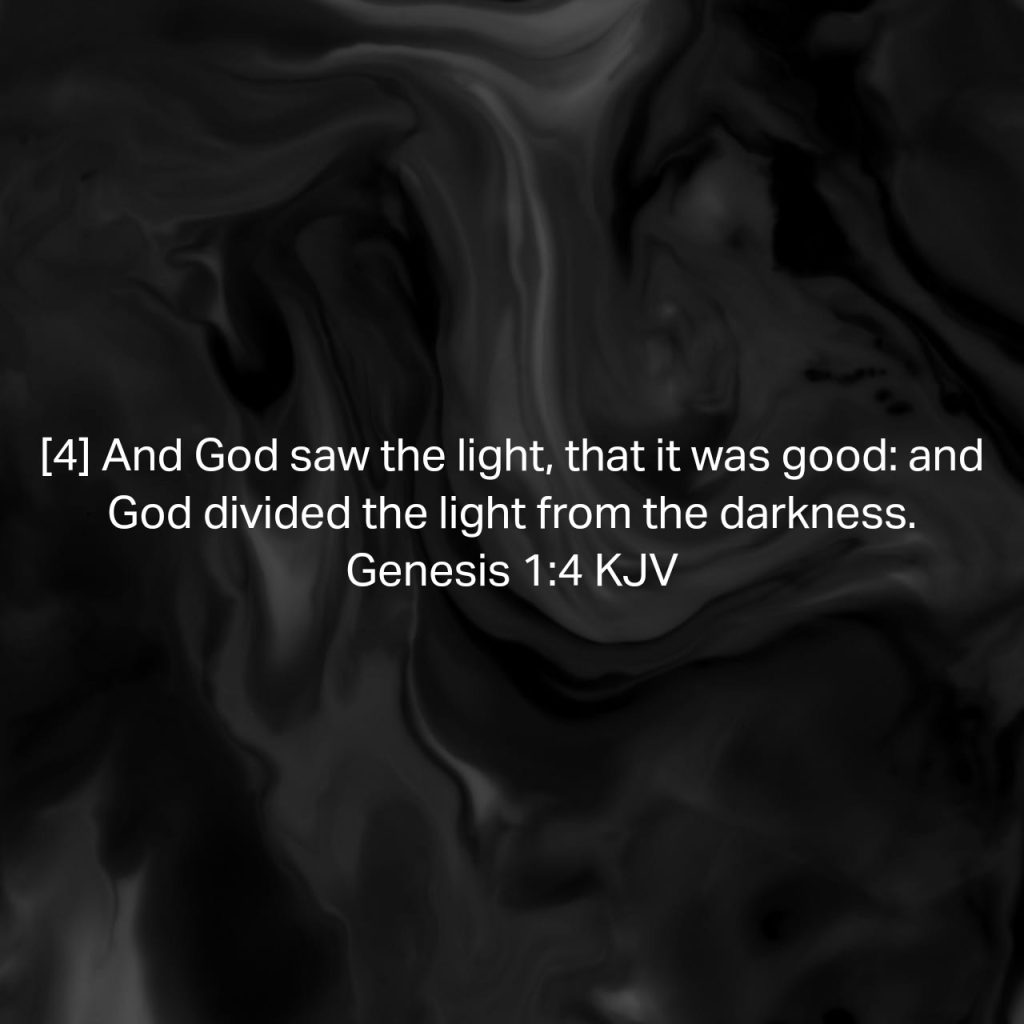The term “epistemology” comes from the Greek words “ἐπιστήμη” (epistēmē), meaning “knowledge,” and “λόγος” (logos), meaning “study” or “discourse.” Here’s a detailed chronological breakdown: 1. Proto-Indo-European (PIE) The PIE root “*weid-” means “to see” or “to know.” 2. Ancient Greek From the PIE root, the Ancient Greek word “ἐπίσταμαι” (epistamai) developed, meaning “to know.” The noun “ἐπιστήμη” (epistēmē) means “knowledge” or “understanding.” The word “λόγος” (logos) means “study,” “discourse,” or “reason.” 3. Late Latin The Greek terms “ἐπιστήμη” (epistēmē) and “λόγος” (logos) were adopted into Late Latin as “episteme” and “logos,” respectively, maintaining their meanings. 4. Middle English (c. 11th to 15th century CE) The Latin terms influenced Middle English,… Read More
Continue Reading
Proverbs 1:7 (KJV)
“The fear of the LORD is the beginning of knowledge: but fools despise wisdom and instruction.” Read more here. Introduction Proverbs 1:7 highlights the foundational principle that reverence for the Lord is the starting point of true knowledge. It contrasts the wise, who seek understanding, with fools, who reject wisdom and instruction. Interpretation This verse underscores the importance of a reverent relationship with God as essential for gaining true knowledge and wisdom. It also portrays the rejection of wisdom and instruction as foolish. Modern Day Application Across Various Fields 1. Theology Emphasizes the necessity of a reverent relationship with God as the basis for true knowledge and understanding. 2. Philosophy… Read More
Continue Reading
Proverbs 1:2-4 (KJV)
“[2] To know wisdom and instruction; to perceive the words of understanding; [3] To receive the instruction of wisdom, justice, and judgment, and equity; [4] To give subtilty to the simple, to the young man knowledge and discretion.” Read more here. Introduction Proverbs 1:2-4 outlines the purpose of the Book of Proverbs, emphasizing the acquisition of wisdom, understanding, and instruction in various virtues. Interpretation These verses highlight the goals of gaining wisdom, understanding insightful words, and receiving instruction in wisdom, justice, judgment, and equity. They aim to provide subtlety to the inexperienced and impart knowledge and discretion to the young. Modern Day Application Across Various Fields 1. Theology Encourages the… Read More
Continue Reading
Mark 4:22 (KJV)
“For there is nothing hid, which shall not be manifested; neither was any thing kept secret, but that it should come abroad.” Read more here. Introduction Mark 4:22 emphasizes the inevitability of truth and secrets being revealed, aligning with the broader theme of illumination and revelation in Jesus’ teachings. Interpretation This verse indicates that all hidden things will eventually be revealed and all secrets will come to light. It suggests the transparency and ultimate revelation of truth. Modern Day Application Across Various Fields 1. Theology Highlights the assurance that God’s truth will be revealed and nothing remains hidden from His sight. 2. Philosophy Promotes the idea that truth and knowledge… Read More
Continue Reading
Proverbs 1:7 (KJV)
“The fear of the LORD is the beginning of knowledge: but fools despise wisdom and instruction.” Read more here. Introduction Proverbs 1:7 highlights the foundational principle that reverence for the Lord is the starting point of true knowledge. It contrasts the wise, who seek understanding, with fools, who reject wisdom and instruction. Interpretation This verse underscores the importance of a reverent relationship with God as essential for gaining true knowledge and wisdom. It also portrays the rejection of wisdom and instruction as foolish. Modern Day Application Across Various Fields 1. Theology Emphasizes the necessity of a reverent relationship with God as the basis for true knowledge and understanding. 2. Philosophy… Read More
Continue ReadingEtymology of the Word “Knowledge”
Contextual Usage The word “knowledge” in English derives from the Old English “cnāwan,” meaning “to know,” combined with the suffix “-leċe” or “-leċ,” which indicates an abstract noun. Its roots trace back to the Proto-Germanic “knew-” and the Proto-Indo-European root “ǵneh₃-,” which also means “to know.” Historical Usage Modern Usage Across Disciplines Cultural Perspectives Knowledge in Modern Context Today, “knowledge” is understood as the sum of what is known, encompassing information, skills, and understanding gained through education and experience.
Continue ReadingEtymology of the Word “Wisdom”
Contextual Usage The word “wisdom” in English derives from the Old English “wīsdōm,” which is a compound of “wīs” (wise) and the suffix “-dōm” (state or condition). It is rooted in the Proto-Germanic “*wis-” meaning “to know.” Historical Usage Modern Usage Across Disciplines Cultural Perspectives Wisdom in Modern Context Today, “wisdom” encompasses not just knowledge but the judicious application of experience and understanding in making sound decisions.
Continue Reading
Proverbs 1:2-4 (KJV)
“[2] To know wisdom and instruction; to perceive the words of understanding; [3] To receive the instruction of wisdom, justice, and judgment, and equity; [4] To give subtilty to the simple, to the young man knowledge and discretion.” Read more here. Introduction Proverbs 1:2-4 introduces the purpose of the Book of Proverbs, outlining its goals of imparting wisdom, instruction, and understanding. Interpretation These verses emphasize the value of wisdom and instruction for living a just and equitable life. They highlight the importance of understanding, discernment, and knowledge, especially for the young and inexperienced. Modern Day Application Across Various Fields 1. Education Stresses the importance of lifelong learning and acquiring knowledge,… Read More
Continue Reading
Genesis 1:4 (KJV)
“And God saw the light, that it was good: and God divided the light from the darkness.” Read more here. Introduction Genesis 1:4 continues the creation narrative, describing God’s evaluation and separation of light from darkness. Interpretation This verse indicates God’s approval of the light He created, deeming it “good.” It also signifies the establishment of order by distinguishing light from darkness, an essential step in the creation process. Modern Day Application Across Various Fields 1. Science This verse encourages the study of light’s properties and its essential role in the universe, including its effects on life and the environment. 2. Philosophy Prompts reflection on the concepts of good and… Read More
Continue Reading
Genesis 1:3 (KJV)
“And God said, Let there be light: and there was light.” Read more here. Introduction Genesis 1:3 marks a pivotal moment in the biblical creation narrative, where God initiates the creation of light, bringing illumination into the previously dark and formless world. Interpretation This verse highlights God’s creative power through His spoken word. The command, “Let there be light,” signifies the beginning of order and clarity, dispelling darkness and setting the stage for subsequent acts of creation. Modern Day Application Across Various Fields 1. Science Encourages the exploration of light as a fundamental element of the universe, including its properties, behavior, and significance in various scientific fields such as physics… Read More
Continue Reading